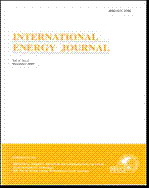ThaiScience
ThaiScience
INTERNATIONAL ENERGY JOURNAL
Volume 22, No. 01, Month MARCH, Year 2022, Pages 97 - 110
Effect of various control strategies on gasoline compression ignition engine: a review
Kien Nguyen Trung
Abstract Download PDF
This paper introduces a new alternative combustion concept as well as a detailed overview of the technique. GCI (gasoline compression ignition) is a promising advanced combustion mode for increasing fuel economy and lowering emissions. This is an innovative engine technology that uses the higher volatility of gasoline and auto-ignition temperature, as well as a diesel engine"es higher compression ratio (CR), to reduce soot and NOx emissions while maintaining diesel engine efficiency. However, GCI engine has some challenges included cold starting, high CO and HC emissions, combustion stability at part load, and high combustion noise at medium-to-full load operations. Therefore, this paper reviews the experimental, numerical, and optical studies to go over various aspects of GCI engine technology, such as its combustion characteristics and controls. Furthermore, this paper examines some experimental studies to assess the potential benefits of GCI technology before pointing out future works. In various control strategies on GCI engines, the fuel injection strategy is the best solution to control the distribution of mixture concentration in the cylinder; adding additives into gasoline can change the reactivity of fuel and extend the lower limit of the stable combustion load of the GCI combustion method and coupling control strategies may be used to achieve stable combustion.
Keywords
Alternative combustion concept, Combustion, Emissions, Gasoline compression ignition (GCI), Low temperature combustion (LTC)INTERNATIONAL ENERGY JOURNAL
Published by : Asian Institute of Technology
Contributions welcome at : http://www.rericjournal.ait.ac.th
